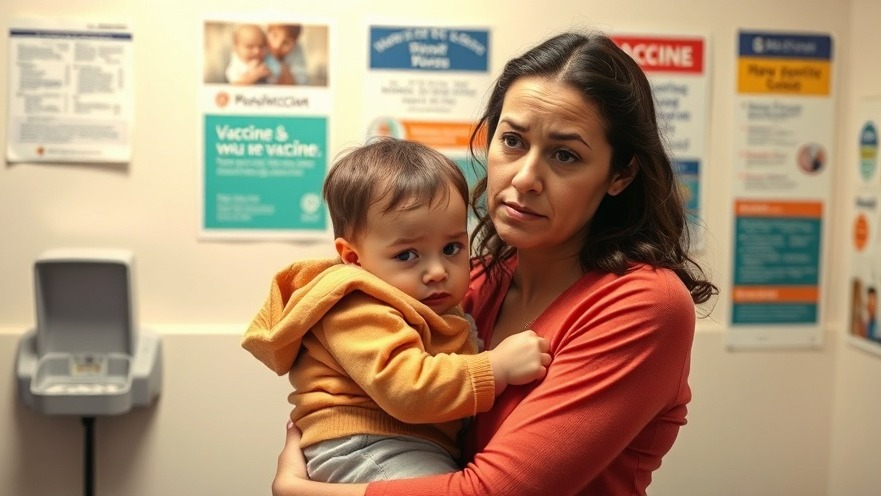
Understanding the Rising Measles Infection Rates in Texas
Amid an evolving landscape of vaccination policies and increasing outbreaks, Texas stands at a critical juncture in public health dynamics. As Texas lawmakers deliberate on relaxing vaccine regulations, public health experts warn of dire consequences that could further fuel the ongoing measles outbreak. This analysis will examine the implications of vaccine choice on the resurgence of measles within the state, as well as potential solutions for local medical practices.
The Current Measles Outbreak: A Stark Warning
The measles outbreak in Texas marks the largest increase the state has witnessed in three decades, with confirmed cases rising sharply to 90, primarily concentrated among unvaccinated children under 18. According to the latest reports from the Texas Department of State Health Services, this escalation comes amid a broader societal trend that has seen parents recently allowed more choice concerning vaccinations. Given that measles is highly contagious, local health departments are scrambling to mitigate what experts believe may only be the beginning of a far more severe public health crisis.
Vaccination Trends: A Correlation and Its Consequences
The correlation between increased vaccine exemptions and rising measles infections is stark. Between 2014 and 2023, the rate of unvaccinated children in Texas has nearly doubled from 7% to 18%. As some communities in Texas boast exemption rates nearing 20%, the risk of spread increases exponentially. In areas where exemptions are most common, such as Gaines County—home to a notably high rate of unvaccinated children—the challenges facing health officials are only amplified.
Counterarguments: Freedom of Choice vs. Public Health
This contentious debate boils down to a fundamental conflict between the right to vaccine choice and public health imperatives. Advocates for maintaining stringent vaccine requirements argue that to protect the most vulnerable populations, including infants and those who cannot be vaccinated for medical reasons, community immunization rates must remain at or above the 95% threshold to prevent outbreaks. However, groups like Texans for Vaccine Choice assert that individuals have a right to make informed health choices. This divergence raises questions about how individual freedoms must be balanced with collective health responsibilities.
The Role of Concierge Practices in Public Health Advocacy
For concierge medical practice owners, the implications of rising measles cases extend beyond public health; they present an opportunity for proactive community engagement. By fostering discussions on vaccine education, disseminating accurate information, and offering vaccination clinics, practices can fortify their position as trusted health advisors. Emphasizing the importance of vaccinations could not only help curb the measles outbreak but also reflect the practice's commitment to community welfare—an increasingly important factor in attracting and retaining patients.
Conclusion: A Call to Action
The resurgence of measles in Texas necessitates immediate action. It is critical for medical practice owners to advocate for vaccination and public health policies that prioritize community welfare over individual exemptions. By doing so, they not only solidify their practice's standing in the community but also contribute to a safer, healthier environment for all residents. Engage with local policymakers, support vaccination initiatives, and educate patients about the importance of immunizations. Together, we can work towards reversing the troubling trend of vaccine hesitancy before it results in more severe outbreaks.
 Add Row
Add Row  Add
Add 




Write A Comment